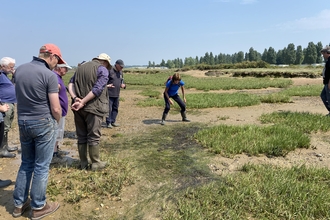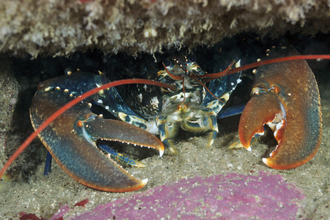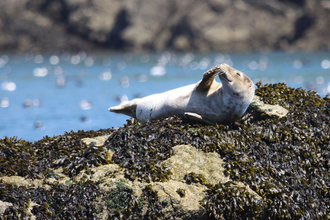Essex has one of the longest and most beautiful coastlines in the country and is home to magical marine species. You might think that curious cuttlefish and stunning sharks are more likely found in exotic, tropical locations, but you can find them in Essex waters living in crucial habitats such as seagrass meadows.
How to help marine life
By taking small actions and making small changes, we can help to protect and conserve our beautiful coastline.
Unfortunately, our incredible coastal creatures and habitats are under threat. We have already lost 98% of seagrass in some Essex sites, and less than 5% of our native oyster beds remain of historical levels in England. These statistics are worrying, especially with the knowledge of how important those habitats are not only for wildlife, but also for us.
It’s not all doom and gloom though. Essex Wildlife Trust is working on projects to help our marine habitats and species, and you can help too! By taking small actions and making small changes, between us we can reduce pressures and damage, and help to protect and conserve our beautiful coastline.
How to help marine life
At home:
- Reduce plastic usage – Use alternatives such as bamboo and reusable containers
- Use eco-friendly cosmetic and cleaning products – Avoid products that display ‘harmful to aquatic life’ on the back
- Be mindful of your diet – Reduce your seafood consumption or aim for sustainable sources
- Give a voice to marine life - Become an advocate for the underwater world by supporting our work to ban bottom trawling.
- Tell a friend - Share your love for the marine environment and these actions with your friends and family
At the coast:
- Pick it up - Make sure you pick up litter and keep our environment clean. You could also join one of our beach clean events
- Be a Seagrass Spotter - Download the app to record the presence or absence of seagrass when you’re at the coast to provide us with valuable data
- Coastal etiquette – Avoid damaging our coastal wildlife and habitats by being aware of the species that live there such as beach-nesting birds. Make sure you steer clear of them, and avoid using or landing watercraft in sensitive areas









